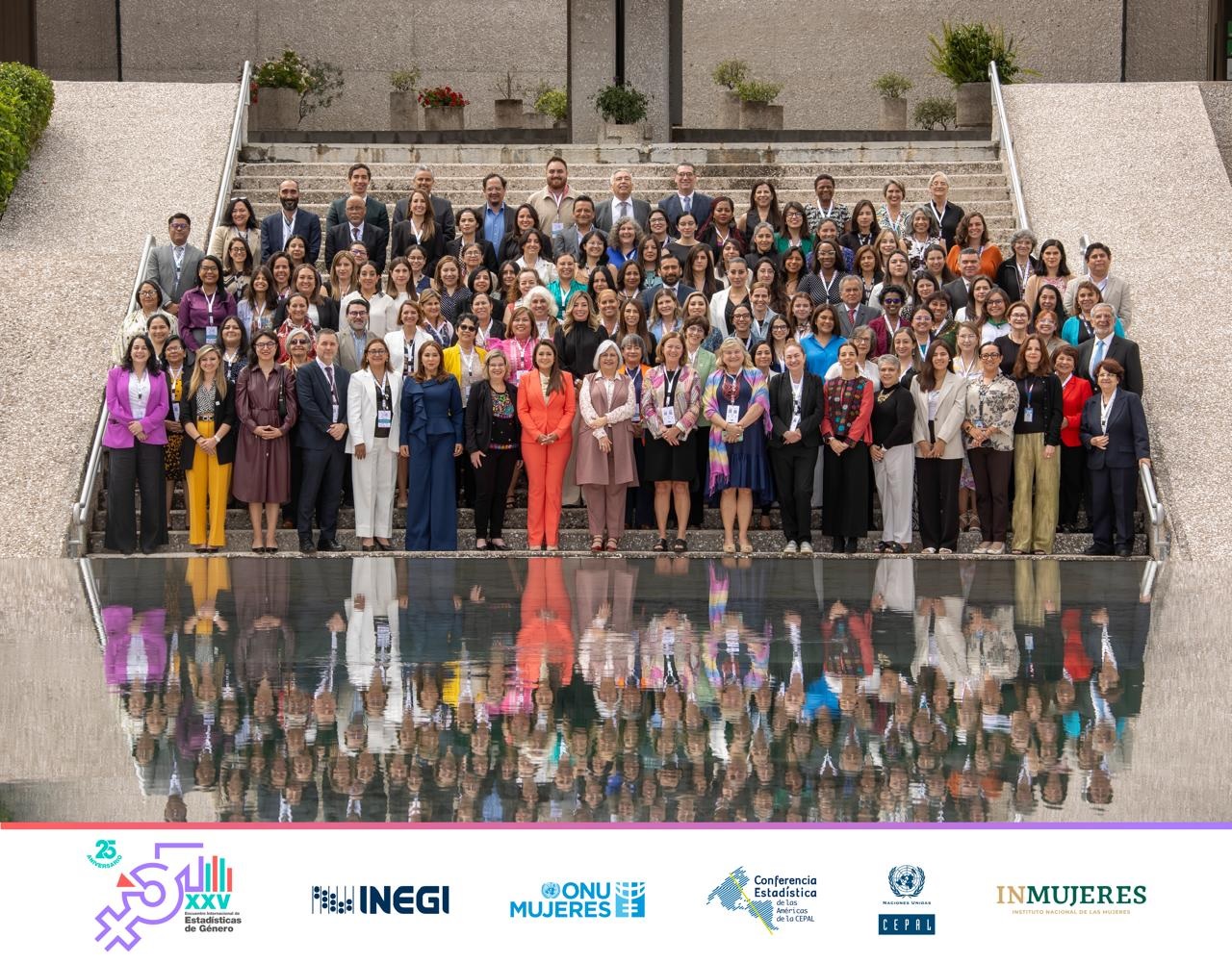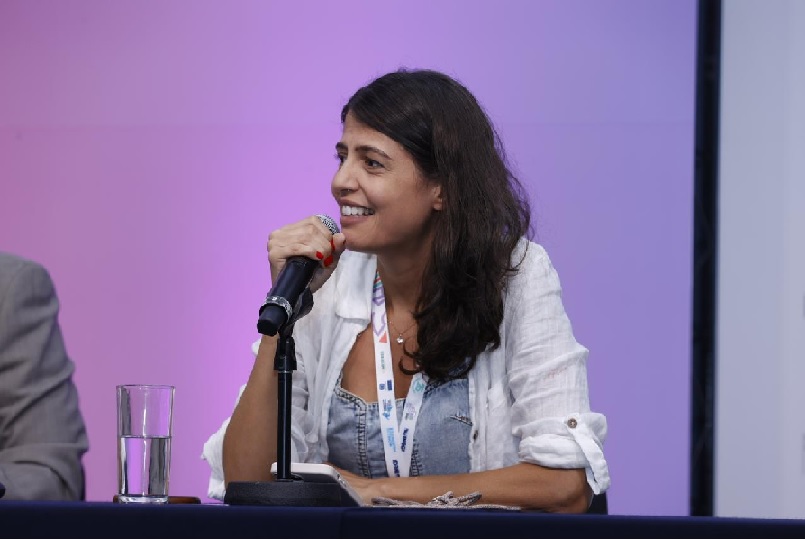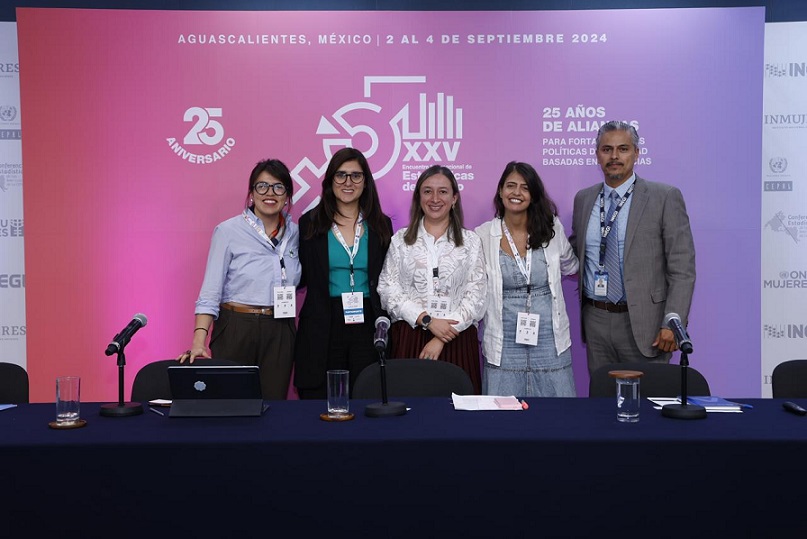In Mexico, IBGE participates in the 25th International Meeting on Gender Statistics
September 05, 2024 06h41 PM | Last Updated: September 09, 2024 01h56 AM
 With the theme “25 years to strengthen equality policies”, the meeting was attended by representatives from different countries to discuss the issue.
With the theme “25 years to strengthen equality policies”, the meeting was attended by representatives from different countries to discuss the issue.The Brazilian Institute of Geography and Statistics (IBGE) from September 2 to 4 was present at the 25th National Meeting on Gender Statistics, held at the National Institute of Statistics and Geography of Mexico (INEGI) in Aguascalientes, Mexico, with the aim of strengthening equality policies based on evidence.
On behalf of Brazil, the IBGE attended the meeting with representatives of its Thematic Commission on Social Relations of Gender and Sexuality, in order to “monitor what other countries are doing in terms of gender statistics, identify innovations, and then bring these to Brazil to contribute to our changes and innovations,” explained Daléa Antunes, the coordinator of the Commission.
In this edition, the meeting discussed statistical production around the needs of economic autonomy for women, measures of time-use, gender-related violence against women, the gender perspective in the Sustainable Development Goals (SDGs) indicators and innovation for women in gender statistics.
“The participation of the IBGE is important for us to realize that we are going in the same direction. We are also building our National Sovereign System of Geoscience, Statistics and Data (SINGED), we are increasing our institutional partnerships and investing in artificial intelligence and in data science,” said Daléa Antunes.

The IBGE representative made her presentation on the second day of the meeting, which had as its theme “Progress and challenges of time-use surveys in Latin America and the Caribbean”, with the aim of sharing information on the recent progress of time-use surveys in the countries of the region, to identify and strengthen the answer to common challenges and evaluate the next steps.
In her presentation, Daléa Antunes outlined the possibility of including a module on time use in the Consumer Expenditure Survey (POF), which is planned to be launched at the beginning of next year. She also discussed the changes, which are still at the testing and pilot stage, the questions on care work, domestic work and voluntary work in the “other types of work” module of the Continuous National Household Sample Survey (PNAD-C).
"As a geographer, I was impressed by the presentation by Paloma Merodio, Vice President of INEGI in Mexico, who identified several ways in which inequalities between women and men have increased before and after socio-environmental disasters. For example, she showed how jobs for men and women move in opposite directions, as the demand for reconstruction employs more men and many of the informal jobs in which women’s jobs are more likely to be destroyed. In addition to this panel and others with a territorial theme, there were several interventions during the three days that called for an analysis of gender issues with a territorial focus," said Daléa.

The event also included discussion panels on topics such as violence against women and girls; the relationship between gender and the environment; the use of administrative data to strengthen information about women; the use of artificial intelligence for gender statistics; the position of women in companies, among others.
“ With regard to innovations in gender surveys, they seem to come from two strategies: the use of administrative data and data cross-referencing, as shown by the National Institute of Statistics (INE) in Argentina, when dealing with the form of retirement between men and women. And the use of artificial intelligence and Big Data, as shown by the INEGI in Mexico, by using this tool to analyze reports made through emergency telephones. In this sense, the building of SINGED, the new institutional partnerships and the continued strengthening of the IBGE in the Digital Era are also essential strategies for the advancement of gender statistics, which all countries are apparently doing,” added Daléa.
The coordinator of the Thematic Commission on Gender and Sexuality highlighted, among all the research being carried out in Latin America and in the Caribbean, the initiatives to build guides and methodologies to better capture the new forms of violence typical of the digital era, where the boundary between online and offline seems to be blurred.
About the Meeting
For 25 years, the Meeting has been promoting collaboration between national statistics institutes, mechanisms for the advancement of women, international organizations, civil society organizations and academic experts, and encouraging innovation in the production and use of gender statistics.




















